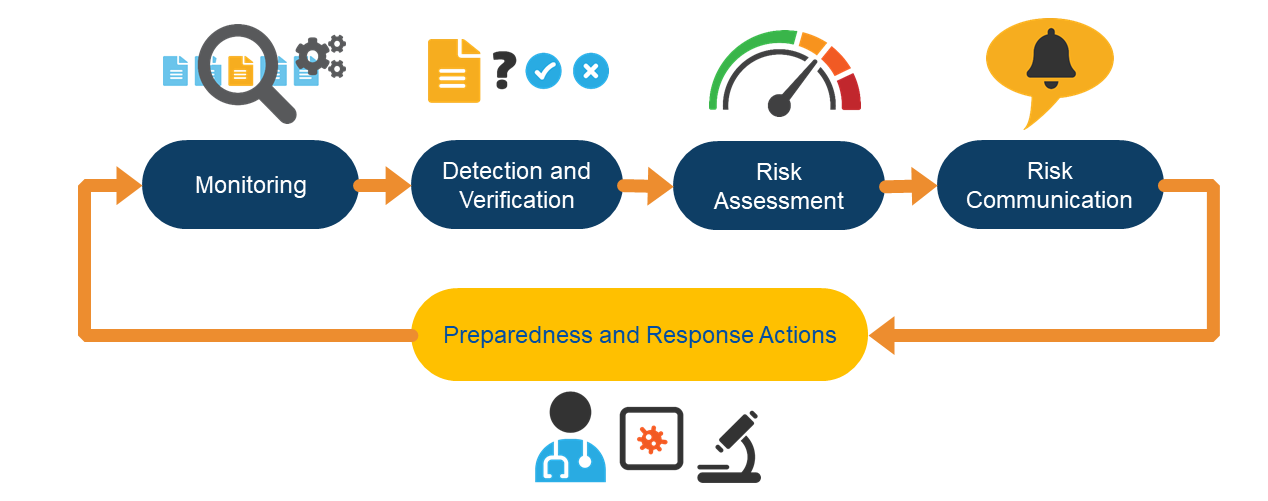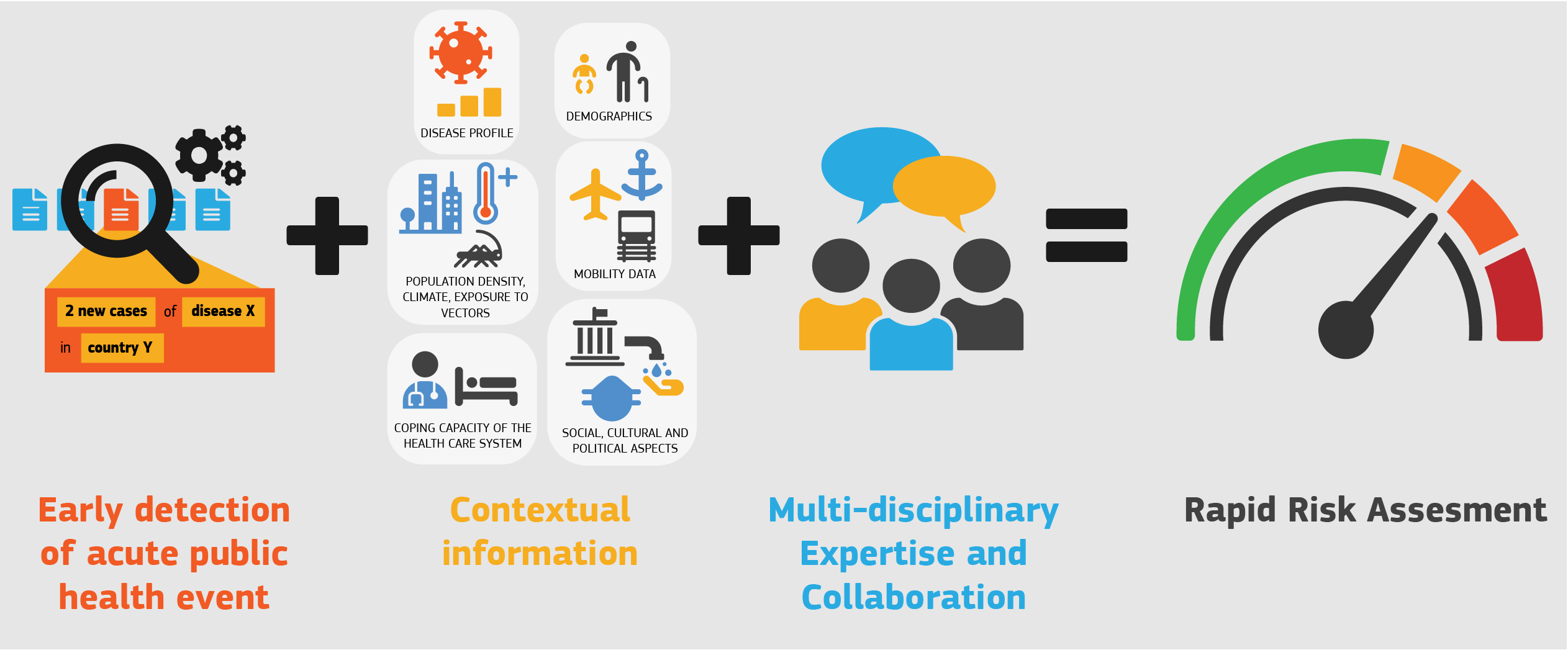The DRMKC is engaged in the continuous development of the EIOS web portal, which integrates articles information extracted by the EMM/Medisys technology (developed by the Competence Centre for Text Mining and Analysis ) and supports the public health intelligence activities carried on by the EIOS community of public health experts.
 The Public Health Intelligence function as supported by the EIOS system.
The Public Health Intelligence function as supported by the EIOS system.
To achieve this, the EIOS web portal integrates tools for visual analytics and collaborative analysis, and enables the exchange of information across different organizations and teams involved in the initiative.
One priority for the EIOS system in which the DRMKC is particularly engaged is the integration of additional contextual knowledge (including demography, environmental factors, migration and movement patterns, coping capacity of health systems, etc.) to better support the rapid risk assessment of early identified threats and, subsequently, faster and more effective decision-making.
 The key elements for performing rapid risk assessesment according to the EIOS approach: the early identification of a public health threat is collaboratively assessed by experts with possibly different expertise and focus, and their knowledge is augmented by contextual information about the specific threat.
The key elements for performing rapid risk assessesment according to the EIOS approach: the early identification of a public health threat is collaboratively assessed by experts with possibly different expertise and focus, and their knowledge is augmented by contextual information about the specific threat.
As a first effort in this line of work, the INFORM Epidemic Risk Index, the INFORM COVID-19 Risk Index and the general INFORM Risk Index have been integrated in the EIOS system. Further development is envisaged to integrate other INFORM tools as well as a comprehensive library of exposure, vulnerability and coping capacity indicators.